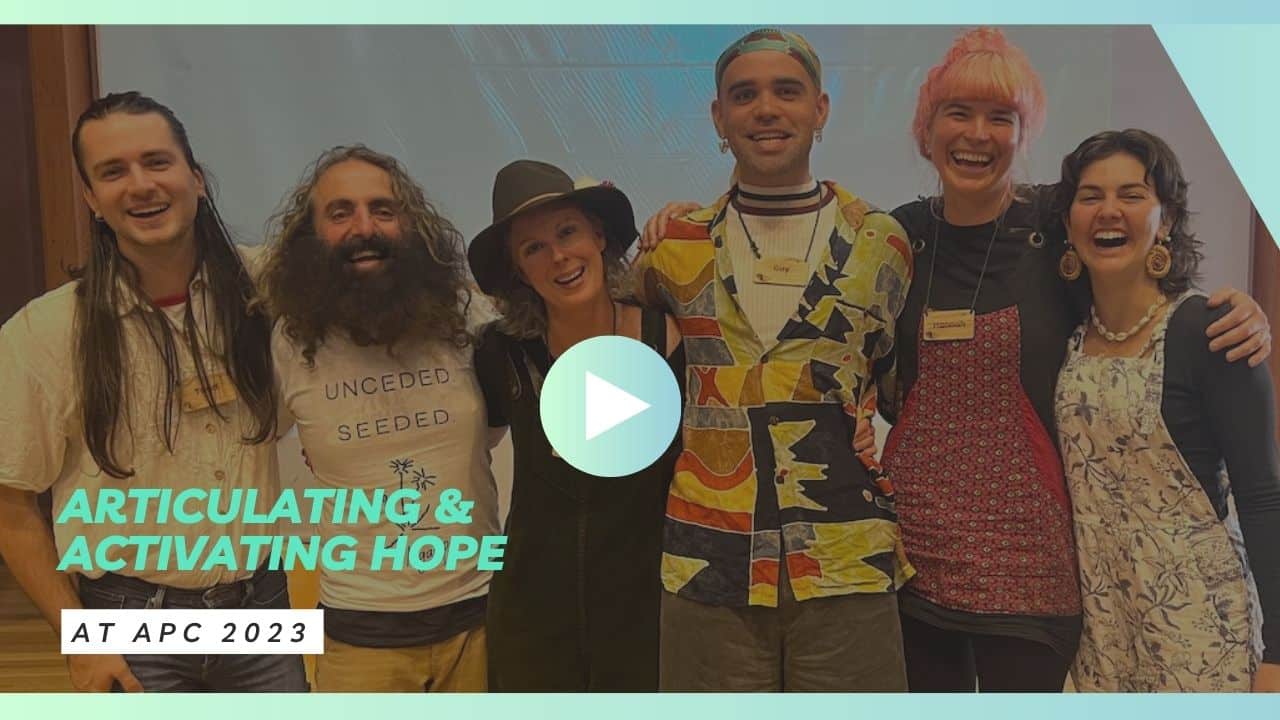
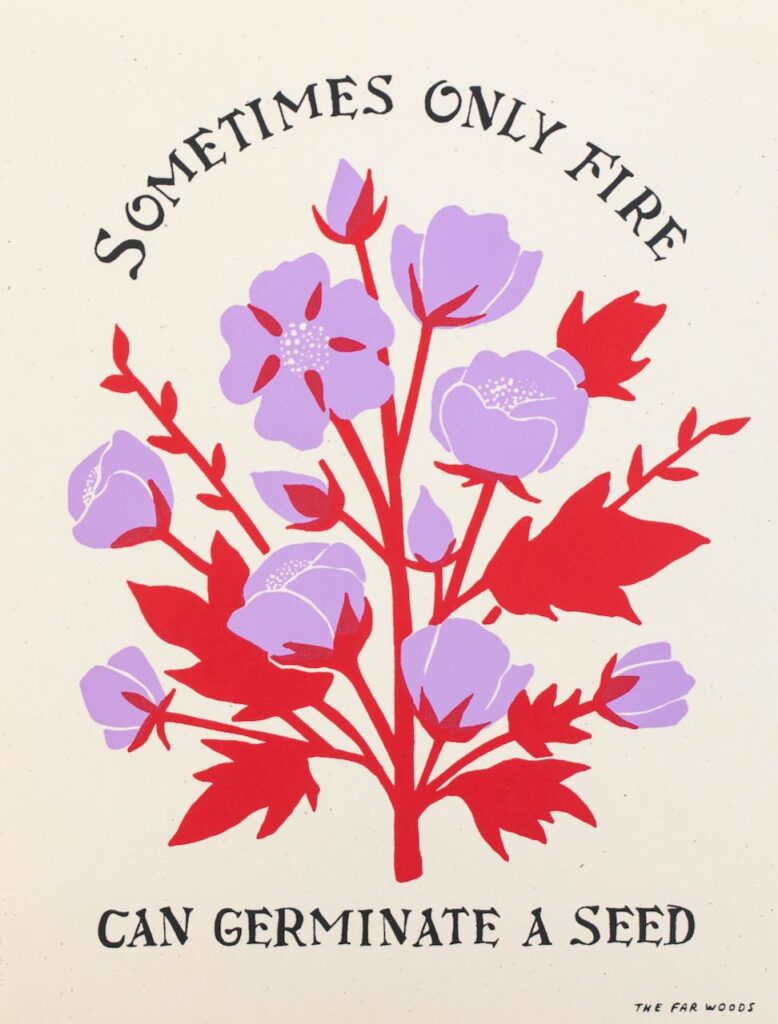
“Active Hope is about being active participants in bringing about what we hoped for. Active hope is a practice. It is something we do, rather than have. It is a process we can apply in any situation.” ~ Joanna Macy, from her book Active Hope.
At the recent Australian Permaculture Convergence, on Paramangk country near Tartanya / Adelaide, I had the honor of co-hosting an amazing conversation on Articulating and Activating Hope with some very excellent humans. It was so good, and touched on so many things that I’ve been thinking about, and longing for, and looking for, these last few years.
I started writing about radical hope a few years ago, after re-reading Rebecca Solnit’s Hope in the Dark – Untold Histories, Wild Possibilities, and Jonathon Lear’s Radical Hope – Ethics in the Face of Cultural Devastation. Since then, it’s been a big 3 years at our house – getting caught up in devastating bushfires at Mallacoota, and the covid pandemic times, which left no-one untouched or unchanged. I’ve kept reading and thinking about hope, but I wasn’t able to be very articulate about it, when speaking with others, these last few years.
Our upcoming book, The Milkwood Permaculture Living Handbook, does centre active hope as a central tool for building strength and capacity, and to create more justice in this world of ours, while keeping our hearts open – but that’s not out in the world, quite yet. So having this conversation, in the arms of the Australian Permaculture Convergence, was important to me. So important that i choked up while preparing for it.
While I was preparing, I was re-reading Joanna Macy’s book Active Hope – which conveniently had the same name as this conversation, though I hadn’t been thinking of her book when I proposed the panel. But in the way of knowledge showing up and giving you a reminding shake of the shoulder, as often happens when I’m researching something, this book re-surfaced into my attention.
Joanna Macy’s work is so very excellent, and covers so many decades of thoughtful discovery, teaching and learning, with attribution to the knowledge-keepers before her that you don’t often see in writing of past decades. Active Hope is a book that came out of holding many, many workshops on climate grief, as a process and a part of what Macy calls “The Work that Re-connects”.
It’s a powerful, and very useful, practical way of defining hope as a pathway forwards.
Here’s how Joanna Macy defines Active Hope:
“Whatever situation we face, we can choose our response (within reason). When facing overwhelming challenges we might feel that our actions don’t count for much – yet the responses we make and the degree to which we believe that they count are shaped by the way we think and feel about hope.
Hope has a few definitions as defined by the dictionary; the first meaning of Hope is something that is likely to happen. We can be hopeful that from three choices that are already on the table, the one we hope for will be the one that occurs. But there is a second definition of Hope – and this one is all about desire.
What do we really want to happen? It is what we do with this kind of hope that really makes the difference. This is not about waiting for external agencies to bring about what we desire. Active hope is about being active participants in bringing about what we hoped for. Active hope is a practice.”
Macy then goes on to define the three key steps of active hope, as she articulates and teaches in her workshops:
The three key steps of active hope:
- We begin with a clear view of reality (truth telling)
- We then identify what we hope for in terms of the direction we’d like things to move, or the values we’d like to see expressed.
- And then, we take steps to move ourselves, or our situation, in that direction.
So simple! But also, so often not that easy. And here’s the real kicker:
“Since active hope through this process does not require our optimism, we can apply it even in areas where we feel hopeless. The guiding impetus is intention. We choose what we aim to bring about, act for, or express – and then we move in that direction.”
Joanna Macy
Whew! That seemed like a good place to start, especially at a permaculture convergence, in a time of so many overlapping crises. And radical hope had been such an ongoing conversation between me and my mate Hannah Moloney, that having a conversation about it at APC seemed like a great idea.
But then, we arrived at APC, and got to meet and hear from the amazing Guy Ritani and Toad Dell of PermaQueer, and the excellent Tiahni Adamson of SeedMob and CH4. It became clear to both myself and Hannah that a panel about active hope with these humans would make the conversation 10 thousand times better. Especially with added Costa Georgiadis, one of the most hopeful humans I have had the pleasure of knowing.
And what a conversation it was. So many mic-dropping insights. And excellent minds, and tender hearts, and truthful perspectives – which we really need in this times of everything. Take an hour sometime soon, if you can, and absorb it all:
Articulating and Activating Hope – APC 2023
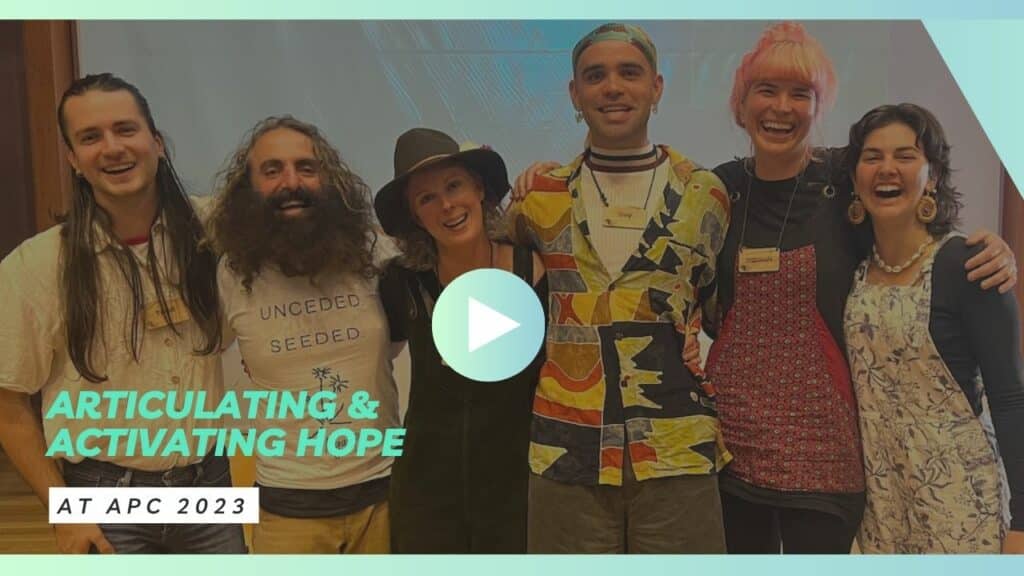
(have to say my fave auto-caption misquote is the wind of tolerance – make that window of tolerance. But all winds in this weather are welcome, also)
Active Hope through the lens of a practice is so important. It grounds us into something that we can cultivate – something that we can build our strength towards… and then there’s the role that presence plays in active hope… we have to look, and truth-tell, and see things as they are.
Guy Ritani – PermaQueer
Our hope needs to be grounded in the reality of the situations that we’re in – and ensuring that it’s nurturing all of us correctly, so we don’t just angrily yell… finding in that hope the self-sustainability and the transparency within ourselves to be solutions based, and work for a better world, with hope
Tiahni Adamson
if we keep using blunt language we can create despair… language is often underestimated – if we can apply language as a tool, it becomes part of the practice, on a path of intent, towards hope
Costa Georgiadis
you hear people going oh yeah, I did that activism thing in my teens my 20s my 30s and then I had to stop… I’m like no no – it’s not a thing we do on the weekend, or a thing we do when we’re young, it’s a life commitment, it’s a lifestyle – and it’s awesome when you just find what works for you
Hannah Moloney
people hold knowledge collectively… there’s not an individualist, lone rugged individual who is the hopeful one… transformation occurs only in relationship… I need to be in many different relationships holding the capacity to change – that’s really where we hold hope.
Toad Dell – PermaQueer
Big, beautiful thanks to all the amazing volunteers of Permaculture SA for hosting us and holding us all during this nourishing and excellent convergence, and for recording the talks on the main stage. Thanks extra to Tim the sound person, for wrangling many microphones.
Thanks to the fabulous Meg McGowan for introducing the panel (and being excellent, besides), to Permaculture Australia for their part of APC 2023, and to Brenna Quinlan, Linda Woodrow and many others who nourished my brain and heart over the weekend. And thanks again for the conversation – Hannah, Guy, Toad, Costa and Tiahni.
I came away from this convergence re-energised and excited – about the role that permaculture design thinking has played, and how it can continue to contribute – in both legacies and futures of active hope, and effective, grass-roots design strategies… for crisis and mutual aid, and also for the futures that we need to build, piece by piece and day by day, together.
A few references from the talk, and this wider conversation:
- Joanna Macy’s work is here
- Active Hope – an additional project website (and free online course!)
- Our articles on Radical Hope are here
- Hope in the Dark – Untold Histories, Wild Possibilities – Rebecca Solnit
- Rebecca Solnit’s everything else (I love it all!). Also her Guardian articles, and her new project Not Too Late.
- Radical Hope – Ethics in the Face of Cultural Devastation – Jonathan Lear
- Crip Camp – a disability revolution – amazing doco, mentioned in talk
- Claire G Coleman – whose writings have made me think so much about the indigenous experience of living post-apocalypse
- PermaQueer – Guy + Toad’s emerging constellation of projects
- SeedMob – Tiahni’s one-of-many projects
- The Good Life – Hannah’s book
- The Milkwood Permaculture Living Handbook – out in September 2023
- The Far Woods made the artwork which is the first image (and much wonder besides)
- Quake and Quiver created the ‘mushroomed’ artwork
- The APC 2023 recordings (there’s so many good ones) will be added here when they’re ready (soon!)
… hope is in the domain of the heart, not only in the head… it’s important for us to continue creating spaces, because we can lead from that space… and we lead most effectively when we’re creating environments where others can dream and others can hope from.
Guy Ritani – PermaQueer
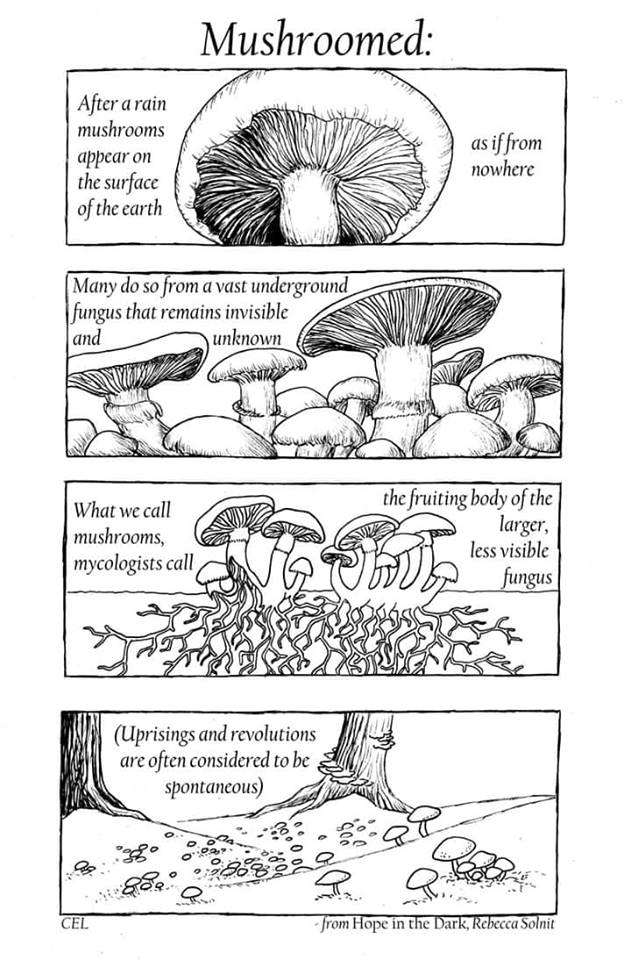

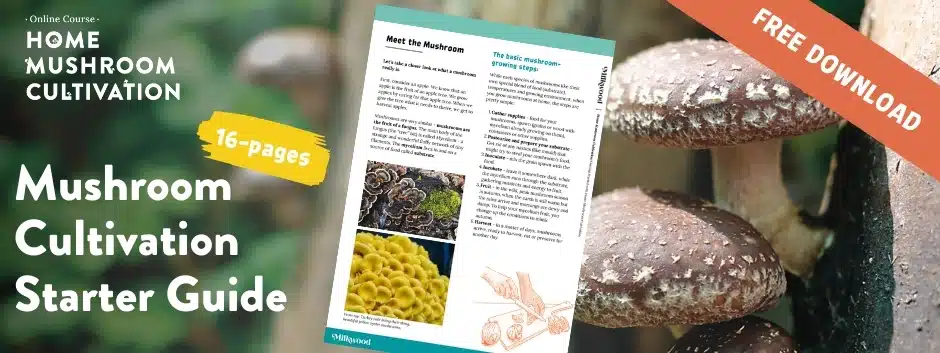
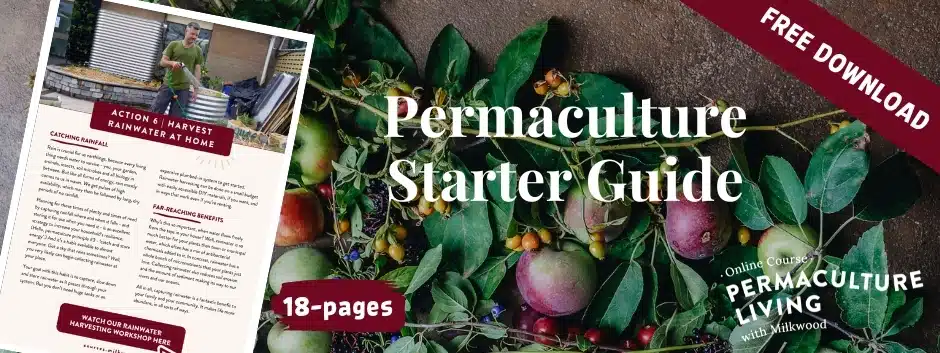
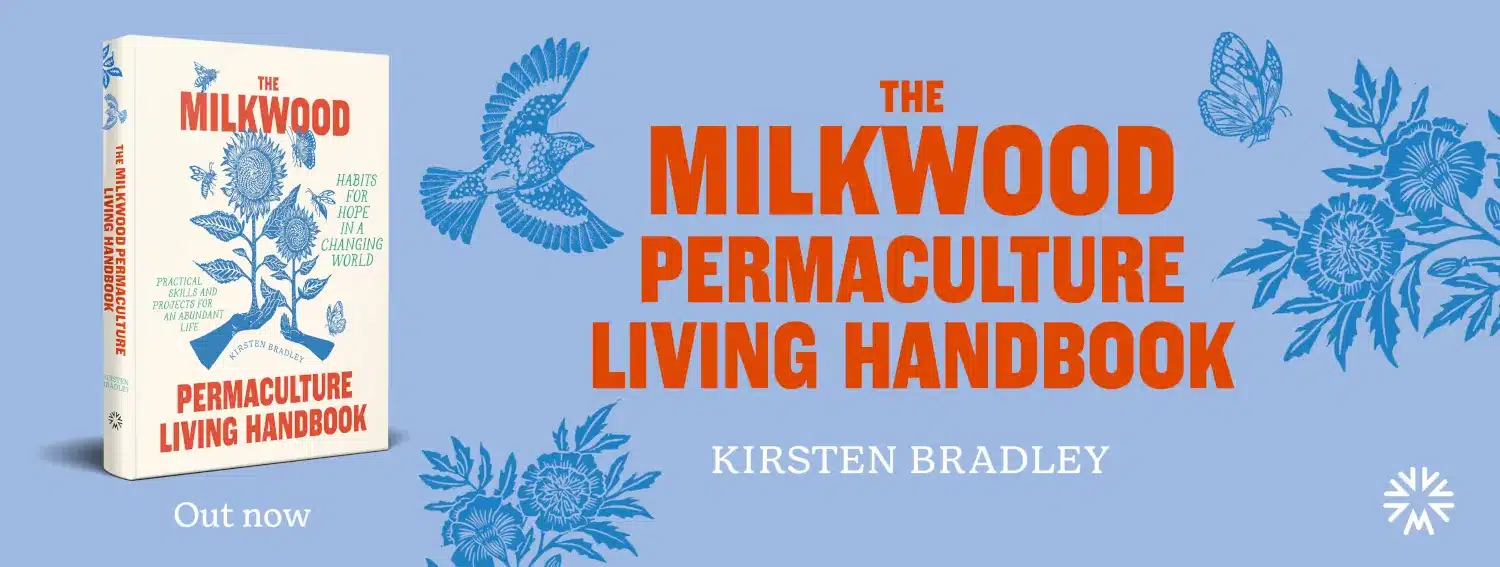
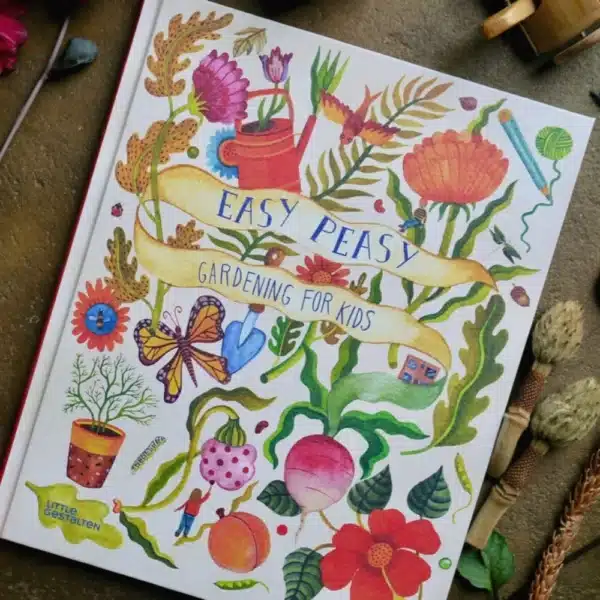
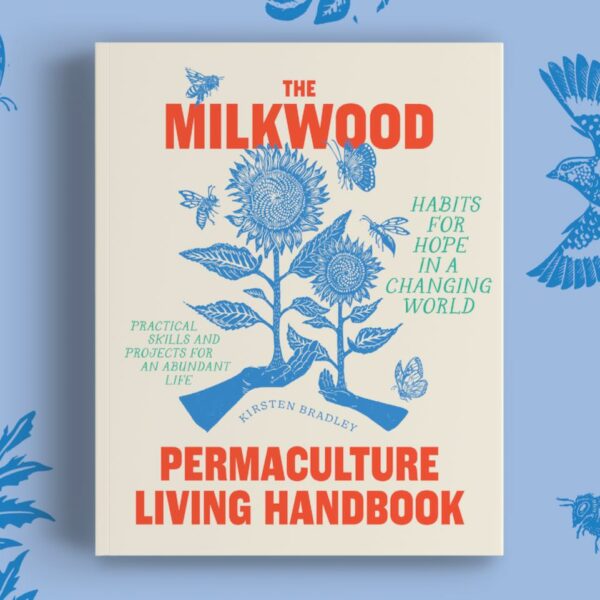
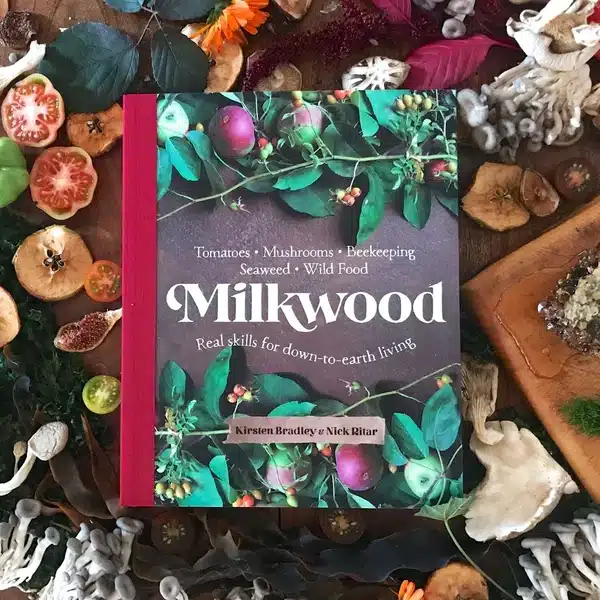






Lovely to read about these active hope conversations. I feel sometimes it is all we have left. But is does to some extent rely on people all have similar worldviews, easy enough at PC convergence. One person’s hope maybe another’s recipe for destruction, unless we dig very deeply into what REALLY matters. Anyway, you might was to take a look at my PhD thesis written some 23 years ago! Its title is “The Getting of Hope: Personal Empowerment through Learning Permaculture” (University of Melbourne). I’d probably write it a bit differently these days, afterall, permaculture has evolved since then, but… Read more »
Hi Caroline – agreed that if you are working with others, yes there needs to be some commonality between your ‘hopes’ in order to work together, but that’s as it’s ever been, in any movement or action. Would love to see your thesis!
Hi Kirsten, I do think when the chips are down, and they’re pretty close to being down now, people are coming to their senses from many different backgrounds and see the mess we’re in. But then I think there’s a side to humanity, almost a social Darwinism, that doesn’t really care about Nature or understand how critical she is to our flourishing. So like many of us, I oscillate between pessimism and optimism – as Gramsci said: “I’m a pessimist because of intelligence, but an optimist because of will.” And as Teillard de Chardin said, “The world belongs to those… Read more »
thanks for the link Caroline, and great quote 🙂
While I think of it, for those of you who haven’t come across it, you might also want to put Permaculture Pioneers edited by Dawborn and Smith on your reading list. Published by Melliodora. THere’s some brilliant stuff there on hope. And perhaps a second volume is due? It’s been 12 years since it was published (gosh it makes me feel old….) Cheers!
Hi Caroline and Kristen, I’d love to read your thesis too, Caroline. I’ve done a search and found your article on permaculture and hope, which ties in with my current PhD research on the broken-ness of western ways and what is missing is relationship and an ethics of care. First Nations relationality with the natural world and all living beings is how we heal ourselves. I’m a lawyer and I’ve chosen to do my research as a multidisciplinary thesis rather than as part of a law faculty. Are there any local like-minded communities/groups that either of you are aware of… Read more »
Heya Joelle – have you clocked much of amb’s work? Here they are on the On Being podcast – i love their stuff – https://onbeing.org/programs/hope-portal-adrienne-maree-brown/ – also, your request for work makes me think of this mob – worth a chat with them, perhaps? https://wela.org.au/ – go well x
I’m reminded of the enlightened mystic Osho who had a complex and nuanced perspective on hope. While he was critical of the way that hope can trap us in expectations and desires, he also acknowledged that hope can be a natural human tendency and that it can serve a positive purpose in certain situations. Here are some insights from Osho on the topic of hope: “Hope is always in the future. Hope is always tomorrow. Hope is never here. If hope is here, it is not hope, it is realization. So, hope is always future-oriented.” “Hope is a projection of… Read more »
Thanks Sambohdi – it does sound like Osho is talking about passive hope here, rather than the process of Active hope? Interesting –